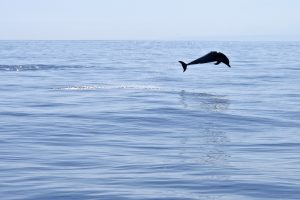President of the UN General Assembly (UNGA) Dennis Francis convened a one-day preparatory meeting for the Third UN Ocean Conference (UNOC-3). Participants discussed the proposed themes for the ocean action panels to be held during UNOC-3 – and the elements for a declaration.
Co-chaired by Costa Rica and France – the two host countries of the Conference, the preparatory meeting took place on 2 July 2024.
According to the preliminary programme released on 24 June, discussion on the proposed ten themes for the ocean action panels drew from the UN Secretary-General’s background note of 13 May (A/78/880), prepared in coordination with the two Presidents of the Conference.
Following “these deliberations and upon further reflection and consultation,” on 3 July, the Co-Chairs circulated a letter, in which they propose “slightly revised themes,” placing them under a silence procedure until 10 July. The ten themes outlined in the letter are:
- Fostering sustainable fisheries management, including supporting small-scale fishers;
- Conserving, sustainably managing, and restoring marine and coastal ecosystems, including deep-sea ecosystems;
- Harnessing and supporting all forms of cooperation, especially at the regional and subregional level;
- Preventing and tackling marine pollution of all kinds, in particular from land-based activities;
- Leveraging ocean, climate, and biodiversity interlinkages;
- Advancing sustainable ocean-based economies, sustainable maritime transport, and coastal community resilience, leaving no one behind;
- Promoting the role of sustainable food from the ocean for poverty eradication and food security;
- Increasing ocean-related scientific cooperation, knowledge, capacity building, marine technology, and education to strengthen the science-policy interface for ocean health;
- Enhancing the conservation and sustainable use of oceans and their resources by implementing international law as reflected in the UN Convention of the Law of the Sea (UNCLOS); and
- Mobilizing finance for ocean actions in the support of SDG 14 (life below water).
According to the letter, “if the silence procedure concludes successfully, the final themes will be circulated to [Member States] via letter of the President of the General Assembly,” and the Secretariat will embark on the substantive preparations.
Addressing the 2 July meeting, the UNGA President highlighted that the ocean covers more than 70% of the Earth’s surface and provides daily subsistence for over 35% of the global population. Among the many challenges facing the ocean today, he mentioned “rising sea levels, frequent extreme weather events, marine heatwaves, reef degradation, ocean acidification, plastic pollution, unregulated fishing practices, and destructive seabed extractive activities.”
Emphasizing that small island developing States (SIDS) “have been at the forefront of advancing conversations on ocean action,” Francis called attention to the case brought by Antigua and Barbuda and Tuvalu before the International Tribunal for the Law of the Sea (ITLOS), “which ruled that carbon emissions can be considered a sea pollutant.”
The UNGA President urged Member States to fully support Permanent Representative of Cabo Verde Tania Serafim Yvonne Romualdo and Permanent Representative of Australia James Martin Larsen – the two co-facilitators he appointed on 6 June “to conduct the intergovernmental consultations on a brief, concise, action-oriented and intergovernmentally agreed declaration, to be concluded by 1 May 2025, and adopted, by consensus,” at UNOC-3.
Speaking in his capacity as Conference Secretary-General, Under-Secretary-General for Economic and Social Affairs Li Junhua said UNOC-3 will address the theme, ‘Accelerating Action and Mobilizing All Actors to Conserve and Sustainably Use the Ocean.’ Recognizing the many challenges the Conference will need to address, he identified the adoption of the BBNJ Agreement, negotiations towards an international treaty to address plastic pollution, and the UN Decade of Ocean Science for Sustainable Development among the “opportunities to tap.”
Li underscored that USD 175 billion is needed annually to achieve SDG 14 by 2030, but less than USD 10 billion was allocated to this Goal between 2015 and 2019. “While using financial resources more efficiently by leveraging synergies across sectors, we also urgently need new finance,” he stressed.
Via video message, UN Secretary-General’s Special Envoy for the Ocean Peter Thomson urged Member States to “take heart” from the recent developments in the ocean space, including the adoption of the Kunming-Montreal Global Biodiversity Framework (GBF), UNFCCC’s annual Ocean-Climate Dialogue that embeds ocean issues into the climate talks, and the World Trade Organization (WTO) coming “very close to ending harmful fisheries subsidies.”
UNOC-3 is scheduled to convene in Nice, France, from 9-13 June 2025. At the conclusion of a high-level stakeholder meeting, held in preparation for UNOC-3 in June 2024, more than two dozen countries signed the Peace for the Ocean Declaration, committing to “scaling up transformative ocean actions to support nature-positive economies based on the best available science and scientific information, traditional knowledge, and innovation.” [UNGA President’s Letter of 13 June 2024 Announcing Preparatory Meeting] [Preparatory Meeting for the 2025 UN Ocean Conference]



